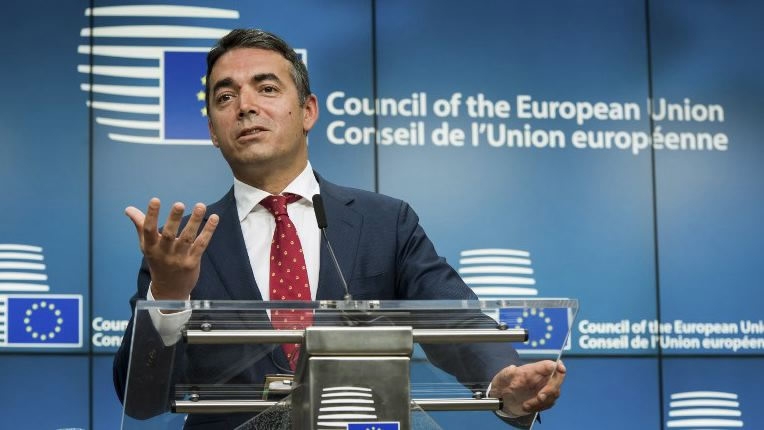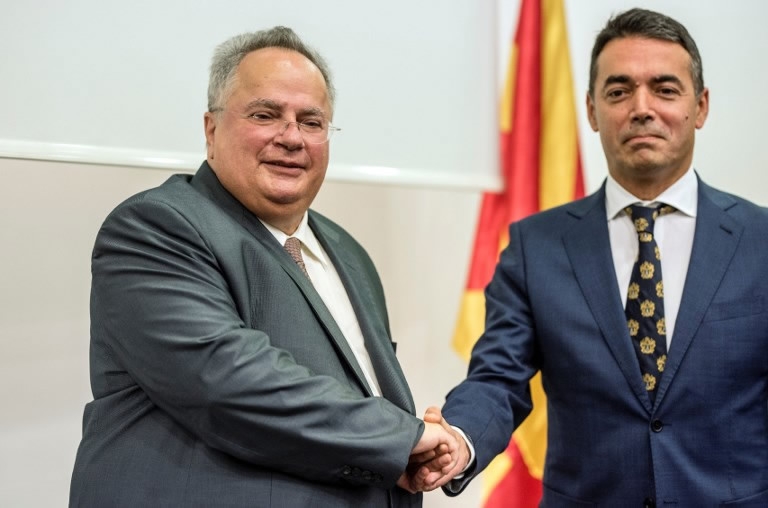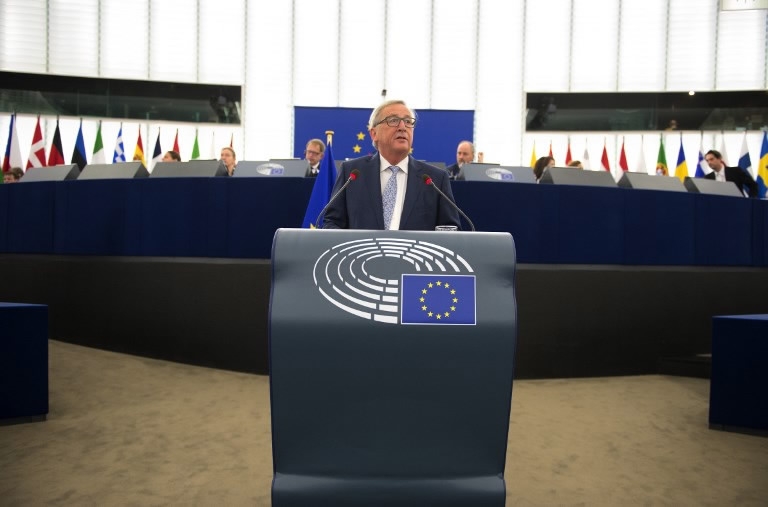
Politics
21:18, 14-Sep-2017
Macedonia wants EU membership process, Greek talks to run in tandem
CGTN

Macedonia hopes it has done enough to convince the European Union to start accession talks while a quarter-of-a-century-long row with neighboring Greece rumbles on, its foreign minister said on Wednesday. Greece has vetoed the ex-Yugoslav republic’s attempts to join both the EU and NATO because it says the name Macedonia implies a territorial claim over Greece’s own northerly region of Macedonia.
Macedonia’s suggestion last month to use the name the Former Yugoslav Republic of Macedonia as it does at other international bodies was not “immediately embraced” by Greece, Macedonia’s Foreign Minister Nikola Dimitrov told Reuters.
The two sides are set to meet again later this month at the UN General Assembly in New York. Whatever the outcome, Macedonia wants the EU to agree that accession talks – which could take years – can at least get under way. “If we have enough in terms of reform at home, we hope we will reach that stage (to start EU accession talks) and deal with the name issue in parallel,” Dimitrov said.

Macedonian Minister of Foreign Affairs Nikola Dimitrov (R) shakes hands with his Greek counterpart Nikos Kotzias during a welcoming ceremony at the Ministry of Foreign Affairs in Skopje, August 31, 2017. /AFP Photo
Macedonian Minister of Foreign Affairs Nikola Dimitrov (R) shakes hands with his Greek counterpart Nikos Kotzias during a welcoming ceremony at the Ministry of Foreign Affairs in Skopje, August 31, 2017. /AFP Photo
The time it takes to go through the EU membership process might give Greece, which has previously insisted that Skopje use a compound name such as “New” or “Upper” Macedonia, enough comfort that process can be halted if needed.
European Commission President Jean-Claude Juncker gave a boost to Macedonia’s EU hopes, and those of Serbia, Albania, Montenegro, Bosnia and Kosovo, saying on Wednesday: “We must maintain a credible enlargement perspective for the Western Balkans.”
Joining NATO is clearer cut, meaning that for now there is unlikely to be much leeway from Greece. “We cannot fight our way into the NATO alliance, we have to talk our way in,” Dimitrov said. “We need to be seen in Athens as an ally … In the long run it is also in the Greek interest to have a law-governed neighbor to their northern border.”

European Commission President Jean-Claude Juncker delivers his State-of-the-Union speech at the European Parliament in Strasbourg, eastern France, September 13, 2017. /AFP Photo
European Commission President Jean-Claude Juncker delivers his State-of-the-Union speech at the European Parliament in Strasbourg, eastern France, September 13, 2017. /AFP Photo
Macedonia, a small ex-Yugoslav republic of about 2 million people, declared independence in 1991 and avoided the violence that accompanied much of the breakup of Yugoslavia. It was later rocked by an insurgency among its large ethnic Albanian minority that almost tore the country apart in 2001 and it has just emerged from two years of political turmoil after a wiretapping scandal brought down the previous ruling nationalist VMRO-DPMNE party bloc in 2015.
Tensions boiled over again in April when protesters stormed parliament and assaulted the country’s now prime minister after his party and ethnic Albanian allies voted to elect an Albanian as parliament speaker.
Macedonia’s position just above Greece meant it was also on the key Syrian refugee and north African migrant transit route to northern Europe until the EU and Turkey struck a deal to stem the flow.
Turkey is due in the coming months to receive a tranche of the money that came with the deal and Dimitrov said it was important the arrangement remained firm. “We think it is very important for Europe to continue to assist Turkey.” “I think closing the Balkan route and the Turkish-EU (financial) deal together helped both Europe and the refugees have a more organized approach to the problem so both are very important and we need both to stay in place.”
Source(s): Reuters

SITEMAP
Copyright © 2018 CGTN. Beijing ICP prepared NO.16065310-3
Copyright © 2018 CGTN. Beijing ICP prepared NO.16065310-3